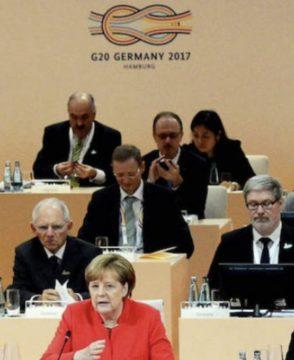Nadav Samin in The Hedgehog Review:
 When I was a graduate student in international relations in the early 2000s, my teachers would frequently invoke the famous, though possibly apocryphal, response of the late Chinese foreign minister Zhou Enlai to the question of whether the French Revolution had been a success: “It’s too soon to tell.” Contemplating the same arc of history that forms the subtext of Zhou’s reply, we might see the United States today bending gingerly away from populist indignation and toward a potentially gentler interval of governance. Though the nation’s attention is rightly focused on domestic matters, above all on contending with a devasting pandemic, changes at the helm mean that it is open season for grand visioning from the heights, particularly as concerns America’s place in the world. Are we dispensable? Indispensable? Exceptional? Banal? Imperialist? Heroic? Or simply unsound?
When I was a graduate student in international relations in the early 2000s, my teachers would frequently invoke the famous, though possibly apocryphal, response of the late Chinese foreign minister Zhou Enlai to the question of whether the French Revolution had been a success: “It’s too soon to tell.” Contemplating the same arc of history that forms the subtext of Zhou’s reply, we might see the United States today bending gingerly away from populist indignation and toward a potentially gentler interval of governance. Though the nation’s attention is rightly focused on domestic matters, above all on contending with a devasting pandemic, changes at the helm mean that it is open season for grand visioning from the heights, particularly as concerns America’s place in the world. Are we dispensable? Indispensable? Exceptional? Banal? Imperialist? Heroic? Or simply unsound?
My grandfather, a citrus farmer in Israel, was skilled at hybridizing citrus trees, splicing branches from one orange tree onto a larger trunk and grafting them to grow as one. That process might also describe the shaping of an emergent American foreign policy, one that joins conservative nationalist principles with liberal internationalist ones. If this smells of nostalgia for a bygone foreign policy consensus, then that fruit is past ripe, because the state of America’s politics today permits no retreads. Rather, I hope that by fusing together some of the sentiments that seem to animate liberal and conservative opinion, including the former’s optimism about human nature and the latter’s emphasis on American sovereignty, we may be able to move toward a new consensus, one that better reflects the nation’s imperfect yet admirable character.
More here.
